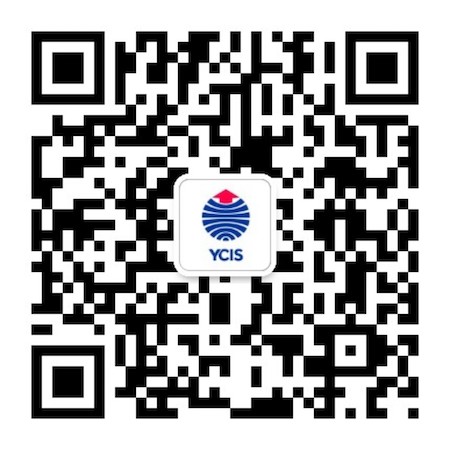Go Back
News
School News
Staying After Class with… David Burton
School News
02 Aug, 2016
10 : 00
Australian David Burton came to Shanghai with his wife in 2007, and for the past four years he has been the E-learning Leader for Information and Communication Technology (ICT) at Yew Chung International School’s (YCIS) Hongqiao Campus. Here, he discusses how the constant evolution of technology is transforming the way children learn today, and how to best equip the youngest generation with the skills necessary to be competitive in the future.
How long have you been in Shanghai and how did you come to work at YCIS?
My wife and I moved to Shanghai nine years ago to begin working at YCIS. We had some dear friends already teaching at the school and they had highly recommended we apply, and it’s been a great experience ever since. I started out as a class teacher in Primary before moving to my current role.
What does your role as an E-Learning Leader involve?
I work with our teachers and academic leadership to design and implement the school’s ICT strategy for our Early Childhood Education (ECE) and Primary programmes. This involves working with the ICT team to determine how we can most effectively utilise our tools, software, and technology resources to benefit our students’ learning. I also train my colleagues on IT matters, and keep up-to-date on the best practices in the sector and share this with others.
How is ICT structured in ECE and Primary at YCIS?
At our Hongqiao Campus, our students range in age from 2 to 11 so they have very different needs. This can be as varied as exploring and becoming familiar with devices for our Kindergarten students, right through to teaching computer skills to older students so they can apply these skills in other areas of their learning.
In ECE, we work more on a student-centered basis, looking at what the children’s interests are, and this determines and leads their exploration and engagement in all aspects of the curriculum, including technology use. For our Primary students, we have specialist ICT lessons that are integrated across the curriculum. These lessons help our students develop skills in word processing, presentations, spreadsheets, website development, coding, animation, and video editing and simulation. The idea is to equip them with necessary ICT skills that they can apply elsewhere in the curriculum and in their future.
YCIS Hongqiao Campus is now a Common Sense Digital Citizenship® certified school. How was the school able to achieve its certification and why is this important?
Children today will live their whole lives as digital citizens, and there are many things we have to do to ensure they use these spaces responsibly and safely. The Common Sense Digital Citizenship® certification confirms that we are doing just this. We are required to update the accreditation each year, and it includes talking with parents as well as students in order to ensure best practices for online use are being shared at school and at home. This is particularly important in the social media age, and also especially for expatriate families, who need to be familiar with both Chinese and Western social media platforms.
Are there any apps or best practices you recommend to aid student learning?
There are so many great education apps now. Some of my favorites include a story creation app, Puppet Pals, and Explain Everything, an app where students are able to demonstrate their knowledge of a topic in a variety of interactive and engaging ways. Also Solar Walk, an interactive walk through the solar system. What I also say, though, is to remember the value of time away from devices, too, including playing outside and with other children. As parents, it’s important that we set a positive example of stepping away from our phones and devices.
As a parent of a young child, do you have any best practices of technology usage at home?
My daughter is three-and-a-half and she occasionally uses an iPad to watch a programme, but she still prefers playing with her parents more than anything else. Balance is important, especially for busy families here in Shanghai. While being online is a big part of our lives now, we can also include our children by showing them what we’re doing on our devices, just as we share other parts of our lives with them. And you’ll be surprised – these days your tech-savvy child might even teach you a thing or two!










